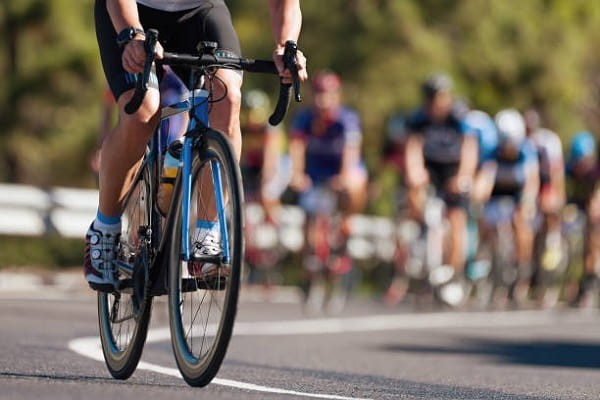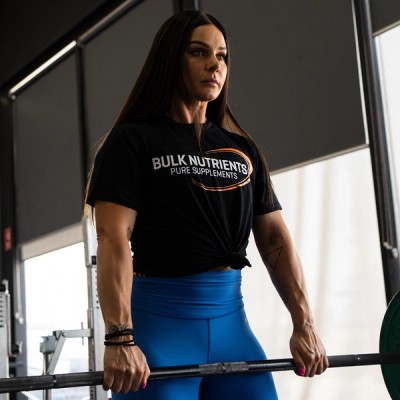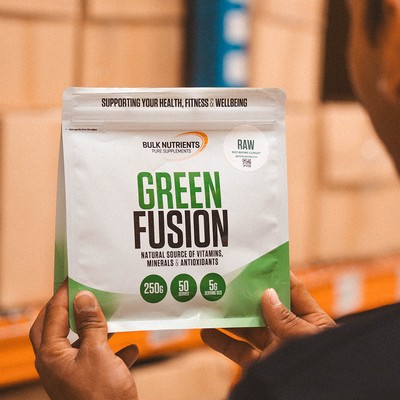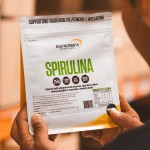Spirulina Increases Power Output in Trained Cyclists

Spirulina for more power
Spirulina has been found in previous research to improve VO2 max, but this fresh study wanted to test its influence over multiple intensities in the form of trained cyclists.
The fact these subjects were trained is great; some studies simply take inactive people give them a supplement and start exercising. But then we don't know how much of the results are just because of the fact they're exercising, or the supplement itself.
This aforementioned study took fifteen trained males aged around forty and gave them 6 grams of spirulina per day (or placebo) for 21 days.
And it was a well-designed study; a double-blinded randomised crossover design, with fourteen days in between to ensure accurate results. This is the gold standard of scientific research!
On day one, the men did a one-hour submaximal endurance test at 55% of their power output max, and a 16.1km time trial.
On day two they did a lactate threshold test: this is the point at which your body produces lactic acid faster than it can remove it. Then they did repeated sprint performance tests.
So, what did they find?
After ingesting spirulina, lactate and heart rate were significantly lower during submaximal endurance tests, and hemoglobin was significantly higher (meaning their blood was carrying more oxygen to working muscles).

Moreover, peak and average power were significantly higher during their sprint performance tests. The authors concluded:
"Spirulina supplementation reduces homeostatic disturbances during submaximal exercise and augments power output during repeated sprint performance tests."
So, spirulina bolstered all-out sprints and their more casual cycles (55% of their power output max).
Specifically, spirulina supplementation was found to lower heart rate and blood lactate during ∼1-hour submaximal cycling and pave the way for significant augmentations in hemoglobin and power outputs during sprints.
That's some pretty good findings for cyclists. But what about those of us performing resistance training?
Well, this very recent study into rats found that spirulina allowed for vascular improvement through the participation of nitric oxide and reduction of oxidative stress (oxidative stress is the imbalance between free radicals and antioxidants in your body).
And in humans?
Well, this eight-week study gives those of us looking for more muscle strength something to hand our hats on: it took forty healthy subjects (20 trained and 20 untrained) and had them perform leg work. This means the muscle length didn't change in their testing, but it's still a measure of strength.
The subjects were either given a placebo or 2 grams of spirulina per day for eight weeks (1 gram in the morning and the other and the evening). They were split into four groups:
- Spirulina (trained)
- Placebo (untrained)
- Spirulina (untrained)
- Placebo (trained)
So, what did they find?
Spirulina increased isometric muscle strength and isometric muscle endurance!
Now, more research is needed here, and we'd like to see spirulina studied across an old-fashioned strength training program. But given the protein content of spirulina and other vitamins and iron within it, it might be suitable for you.

Spirulina for health
Spirulina first came to our attention when it was used by NASA as a dietary supplement for astronauts on space missions. Since then, people have kept a close eye on it.
As mentioned, it has a high protein content (up to 70%) and contains a stack of vitamins! We're talking about B12, A, and iron. It also contains polyphenols and is easily digestible because it lacks cellulose walls.
It also boasts strong anti-inflammatory properties; which in one study significantly improved the release of nasties associated with allergic rhinitis.
Perhaps more importantly, spirulina has also been found to lower blood cholesterol, triglycerides and reduce harmful LDL cholesterol and increase HDL cholesterol (the good type!).
The bottom line on Spirulina
Spirulina supplementation lowers heart rate and blood lactate during ∼1-hour submaximal cycling and boosts hemoglobin and power outputs during cycling sprints. For strength training gym-goers, whilst spirulina improves strength in the form of isometric contractions (muscle length not changing) it may be beneficial in traditional strength training. But more research is needed.
However, the fact spirulina has high protein and vitamins might mean it's worth your time. For general health, spirulina lowers blood cholesterol, and triglycerides and can reduce harmful LDL cholesterol and increase the good type: HDL cholesterol.

Dayne Hudson
Like many, Dayne was once desperate to lose weight and get into shape. But everyone he asked, everything he read, lead to the same place... nowhere.
His journey started there - researching science journals and completing a Sports Nutrition Specialist qualification so he could make weight loss easier.
References:
- Brito AF, Silva AS, de Souza AA, Ferreira PB, de Souza ILL, Araujo LCDC, Félix GDS, Sampaio RS, Silva MDCC, Tavares RL, Pereira RA, Miranda Neto M, da Silva BA. Aortic Response to Strength Training and Spirulina platensis Dependent on Nitric Oxide and Antioxidants. Front Physiol. 2018 Oct 31;9:1522. doi: 10.3389/fphys.2018.01522. PMID: 30429798; PMCID: PMC6220060.
- Dillon JC, Phuc AP, Dubacq JP. Nutritional value of the alga Spirulina. World Rev Nutr Diet. 1995;77:32-46. doi: 10.1159/000424464. PMID: 7732699.
- Ghosh AK. Anaerobic threshold: its concept and role in endurance sport. Malays J Med Sci. 2004;11(1):24-36.
- Gurney T, Brouner J, Spendiff O. Twenty-one days of spirulina supplementation lowers heart rate during submaximal cycling and augments power output during repeated sprints in trained cyclists. Appl Physiol Nutr Metab. 2021 Aug 16:1-9. doi: 10.1139/apnm-2021-0344. Epub ahead of print. PMID: 34399066.
- Hernández-Lepe MA, López-Díaz JA, Juárez-Oropeza MA, Hernández-Torres RP, Wall-Medrano A, Ramos-Jiménez A. Effect of Arthrospira (Spirulina) maxima Supplementation and a Systematic Physical Exercise Program on the Body Composition and Cardiorespiratory Fitness of Overweight or Obese Subjects: A Double-Blind, Randomized, and Crossover Controlled Trial. Mar Drugs. 2018 Oct 1;16(10):364. doi: 10.3390/md16100364. PMID: 30275428; PMCID: PMC6213464.
- Karkos PD, Leong SC, Karkos CD, Sivaji N, Assimakopoulos DA. Spirulina in clinical practice: evidence-based human applications. Evid Based Complement Alternat Med. 2011;2011:531053. doi:10.1093/ecam/nen058
- Mairbäurl H. Red blood cells in sports: effects of exercise and training on oxygen supply by red blood cells. Front Physiol. 2013;4:332. Published 2013 Nov 12. doi:10.3389/fphys.2013.00332
- Mao TK, Van de Water J, Gershwin ME. Effects of a Spirulina-based dietary supplement on cytokine production from allergic rhinitis patients. J Med Food. 2005 Spring;8(1):27-30. doi: 10.1089/jmf.2005.8.27. PMID: 15857205.
- Sandhu, JS & Dheera, Bhardwaj & Shenoy, Shweta. (2010). Efficacy of spirulina supplementation on isometric strength and isometric endurance of quadriceps in trained and untrained individuals – a comparative study. Ibnosina Journal of Medicine and Biomedical Sciences. 2. 79. 10.4103/1947-489X.210974.
Related Blogs

SportsFuel 101 Endurance Sports Nutrition
Posted by Nicole Frain
Estimated reading time: 8 minutes

The Five Best Plant-Based Supplements for Muscle Growth
Posted by Dayne Hudson
Estimated reading time: 6 minutes

How to Support Your Immune System
Posted by Mason Brezinscak
Estimated reading time: 7 minutes





























